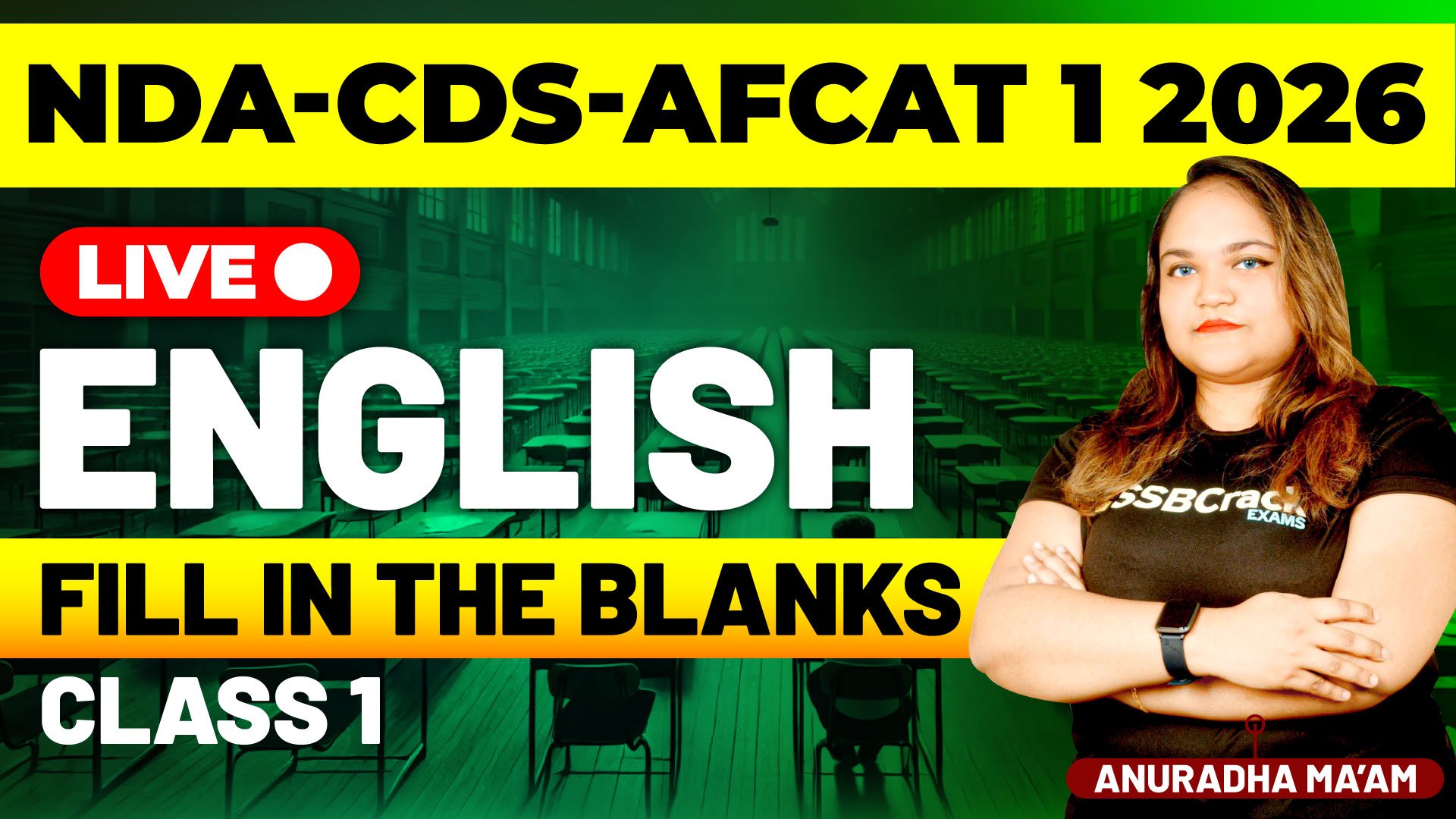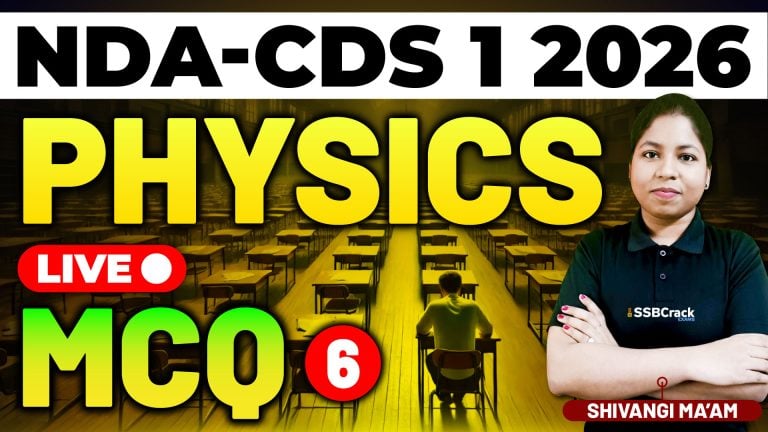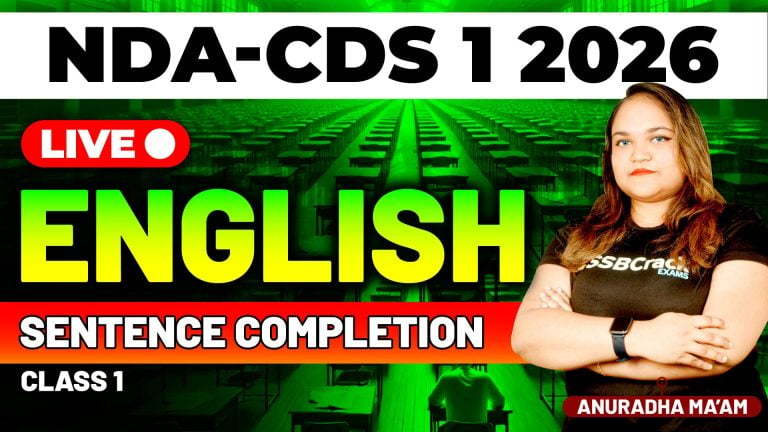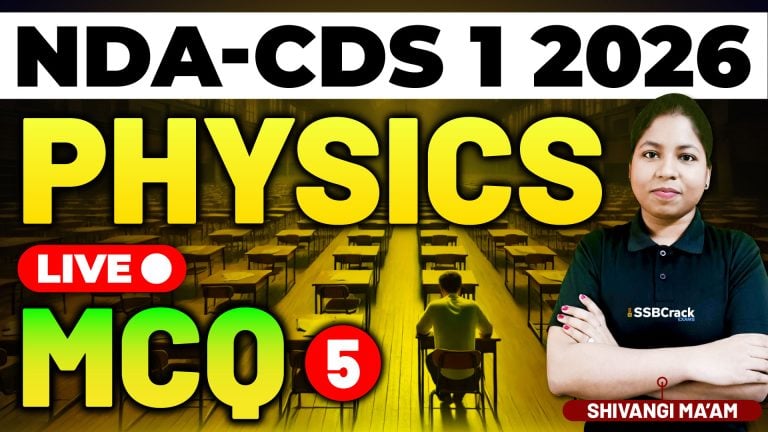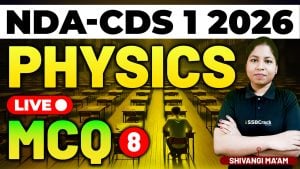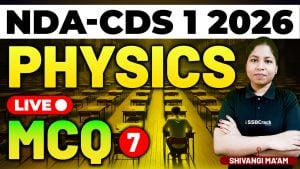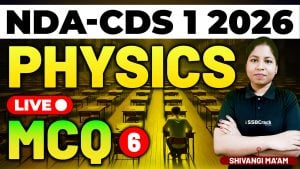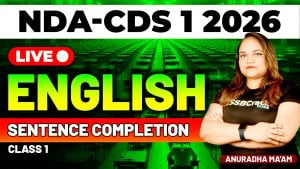The English Live Class 1 on Fill in the Blanks for NDA, CDS & AFCAT 1 2026 aspirants was conducted with the goal of enhancing students’ understanding of grammar, vocabulary, and contextual usage, which are essential for solving Fill in the Blanks (FIB) questions accurately in the upcoming defence exams.
This class laid the foundation for mastering FIB-type MCQs, which test not only grammatical accuracy but also a student’s ability to comprehend the tone, structure, and logical flow of a sentence. Through guided practice and detailed explanations, aspirants learned how to identify patterns and apply rules effectively in exam-like scenarios.
Focus Areas Covered in Class
The session began by introducing the types of Fill in the Blanks questions commonly asked in NDA, CDS, and AFCAT English papers, and gradually moved on to practical exercises. The following areas were covered in detail:
- Grammar-based blanks involving prepositions, articles, tenses, and conjunctions.
- Vocabulary-based blanks requiring the correct word choice, such as synonyms, antonyms, or contextual meanings.
- Collocation-based questions (e.g., “commit a crime,” “make a decision”) to test natural word pairing.
- Context-driven blanks, focusing on understanding sentence meaning and tone.
- Error-elimination techniques for narrowing down close options in multiple-choice questions.
Students practiced exam-level MCQs, with special attention to the logic behind each answer and how one wrong word can alter the meaning of the entire sentence.
Importance of Grammar and Vocabulary in Fill in the Blanks
The Fill in the Blanks section serves as a true test of a candidate’s command over English language fundamentals. Success in this section depends heavily on a well-balanced knowledge of grammar rules and a strong vocabulary base.
Here’s why both are crucial:
✅ Grammar:
- Helps in identifying correct verb forms, prepositions, articles, and conjunctions.
- Ensures that sentences are structurally and logically complete.
- Provides clues through subject-verb agreement, tense consistency, and modifiers.
✅ Vocabulary:
- Enables the candidate to choose the most contextually appropriate word.
- Builds understanding of word nuances such as connotation, tone, and idiomatic use.
- Aids in handling questions where all options seem grammatically correct but differ in meaning and fit.
In NDA, CDS, and AFCAT exams, questions are often deceptively simple but demand quick analytical thinking to select the word or phrase that conveys the intended idea.
Classroom Highlights
The class adopted an interactive and practical approach, including:
- Live MCQ-solving sessions with detailed step-by-step reasoning.
- Common error discussions to highlight typical traps in FIB questions.
- Real exam examples from previous NDA, CDS, and AFCAT papers.
- Vocabulary drills and contextual word exercises to improve accuracy.
- Time management tips for solving FIB questions efficiently during the exam.
Aspirants were encouraged to create a personal grammar and vocabulary notebook for regular revision and to practice at least 10–15 FIB questions daily for reinforcement.
Key Takeaway
The Fill in the Blanks Live Class 1 for NDA, CDS & AFCAT 1 2026 helped aspirants understand that mastering this topic goes beyond memorization — it requires the integration of grammar precision, contextual comprehension, and word sense.
A strong command over English fundamentals not only boosts FIB performance but also enhances proficiency across other sections such as Error Spotting, Sentence Completion, and Comprehension.
By consistently practicing MCQs and reviewing grammar rules, candidates can develop the speed, accuracy, and confidence needed to excel in the English paper of upcoming defence exams.
